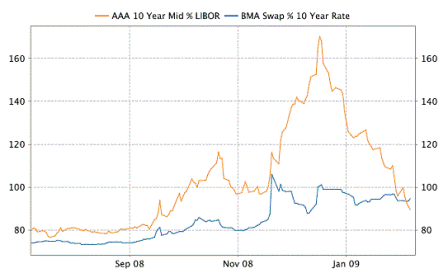Interesting how much of what I say turns out to have been written by Keynes:
Greg Mankiw, Keynes and the Payroll Tax:
The Mature Keynesian Perspective II
As I previously noted, the older (and presumably wiser) John Maynard Keynes was skeptical of using infrastructure projects as a countercyclical tool. NYU economist Mario Rizzo now brings to my attention that the mature Mr Keynes also favored the payroll tax as a countercyclical policy instrument:
In correspondence with the economist James Meade in 1942 Keynes says he is “converted” to Meade’s idea of altering the social security payroll tax over the business cycle. Here are Keynes’s words:
I am converted to your proposal…for varying rates of contributions in good and bad times.
(June 16, 1942). Keynes, Collected Writings, vol. 27, p. 208.
…[Y]ou are able to show fluctuations in income of an order of magnitude which is significant in the context… So far as employees are concerned, reductions in contributions are more likely to lead to increased expenditure as compared with saving than a reduction in income tax would, and are free from the objection to a reduction in income tax that the wealthier classes would benefit disproportionately. At the same time, the reduction to employers, operating as a mitigation of the costs of production, will come in particularly helpfully in bad times.
(July 1, 1942). Keynes, Collected Writings, vol. 27, p. 218.”
[top]







